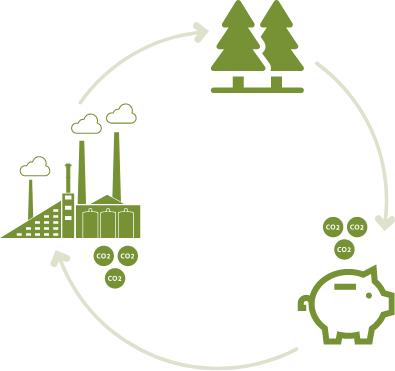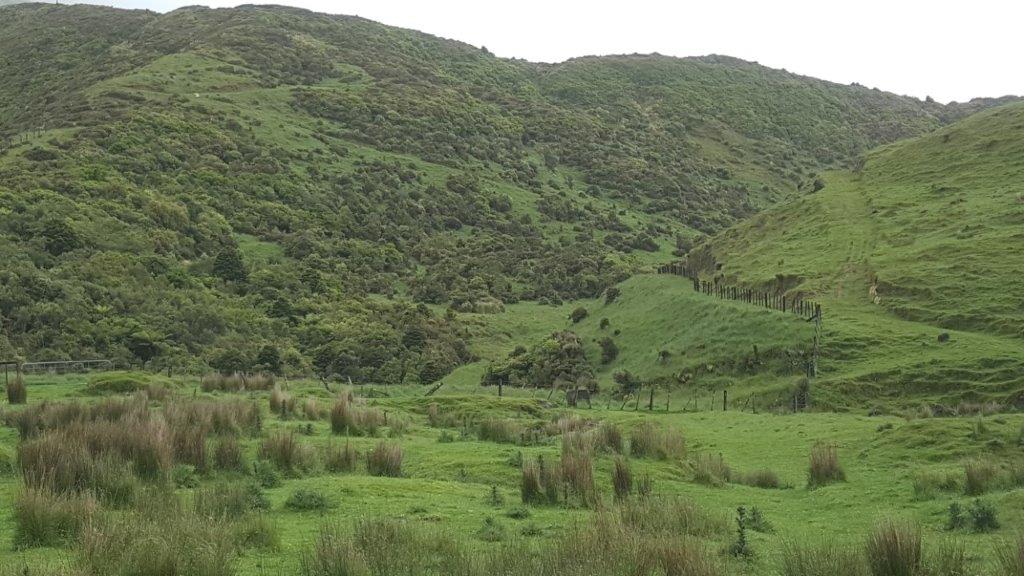Opportunities for Land Owners
EARN MORE INCOME FROM YOUR MARGINAL LAND AS THE TREES GROW.
OUR TAILORED PLANTING LEASE SOLUTIONS DELIVER YOU EITHER A HARVESTABLE OR PERMANENT FOREST.
WE’LL ESTABLISH AND MANAGE THE FOREST AND PAY YOU EVERY YEAR.
Why carbon farming might be right for you

Progressive
You are looking for new ways to earn money off marginal land.

Planner/Investor
You are planning for the next generation and/or retirement savings.

Ease Up
You are approaching retirement and looking to reduce workload and debt.

Environmentalist
You’re connected with the land and know there’s a better long-term proposition for marginal land.

Iwi Groups
You know you can be doing more with the land and need to plan for the long-term land use and economic prosperity.

Boost Cashflow
You want to reduce debt and avoid market volatility. You need a more balanced and certain income.
45,000 ha
of partner forests
$120 million
paid to landowner partners
Over 6,000
landowner partners
Process: How it works
Work alongside a New Zealand owned and operated company
- You get better value from less productive land
- We pay to plant and establish your forest
- We manage and maintain the forest
- We own the carbon credits generated during the lease period
- We sell the carbon credits and pay an annual rental to you
- We deal with MPI and Emissions Trading Scheme
- You inherit a forest at the end of the lease
You own the trees and can harvest after the end of the lease term or decide to keep it as a permanent forest. A permanent forest can continue to generate income from carbon.
The ideal land for lease
- “Marginal” less productive land where forests can be established and trees will grow
- Land eligible under the Emissions Trading Scheme (i.e. not already forested prior to 1990 and grassland post 1989)
- Particularly includes steep, erosion-prone land
- 100 hectares or greater
Resources & Document Downloads
BROCHURE
A Growth Opportunity for Farmers and Landowners
Case study
Forest Farm Model: The Best of Both World
Case study
Paparata Station: Spreading the Investment
Work with our local experts.
We can tailor a bespoke solution to help you unlock your land’s potential.
INSIGHTS
Our Prospectus
LEARN MORE
Spreading the investment
LEARN MORE
Forest farm model: The best of both worlds
LEARN MORE
A Fair Share
LEARN MORE
Eradicating Pests
LEARN MORE
Getting to know The New Zealand Emissions Trading Scheme
LEARN MORE
Joining the ETS: Making marginal land profitable
LEARN MORE
Carbon Farming and the New Zealand Emissions Trading Scheme (ETS)
- Businesses that emit greenhouse gases buy carbon credits to ‘offset’ their emissions
- Landowners can plant forests that absorb greenhouse gas (CO2) as trees grow
- The Government gives carbon credits for the CO2 absorbed by their trees
- Foresters can sell these carbon credits on the New Zealand ETS
- The CO2 removed and stored by trees counts towards New Zealand’s international emission reduction targets

Frequently Asked Questions
Climate change is a phrase we use to describe changing climate patterns that:
- can be attributed to human activity that alters the earth’s atmosphere;
- are beyond natural climate variations observed over comparable time periods.
The effects of global warming and climate change are already measurable. New Zealand’s climate is changing, largely because of the build-up in the earth’s atmosphere of greenhouse gases particularly carbon dioxide, methane and nitrous oxide. For more information visit our Climate Change webpage.
NZ Carbon Farming buys and leases land in order to plant trees. The trees capture and store carbon dioxide with the goal of reducing climate change. This process is called sequestration and generates carbon credits.
Carbon Credits have a tangible value through the Emissions Trading Scheme. One Carbon Credit represents one tonne of carbon dioxide (or equivalent for other greenhouse gases). We then sell the carbon credits to large companies who need them to meet their carbon offset obligations.
The right to pollute the atmosphere is becoming increasingly regulated internationally. The carbon market has been developed to provide an equitable way for industry to offset their greenhouse gas emissions.
Emission units (carbon credits) are traded for the right to emit carbon dioxide into the atmosphere.
The ETS is a carbon market that all New Zealanders will be affected by. The ETS will account for all emissions and reductions within New Zealand. Those who absorb greenhouse gases will be paid by those who emit greenhouse gases.
Each sector of the NZ economy is being brought into the ETS in a staged manner. Forestry has been included first – with agriculture and waste to be included last.
We pay approximately $10m every year in lease payments to land owners & forest owners, delivering a better return per hectare on marginal land or established forests.
You receive an annual lease payment (CPI adjusted upwards) – This delivers you certainty and diversity of income so that you are not solely at the mercy of farm commodity prices.
Costs to establish, insure and manage the forest are all covered by us and you inherit the forest at the end of the lease.
Lease payments vary depending on factors specific to each site such as:
- Land eligible under the Emissions Trading Scheme
- Tree species
- Forest Management Regime
- Climate and soil fertility (affecting how well the forest will grow and sequester carbon)
Initially we can plant around 1200 trees per hectare. This number reduces as a forest matures and then reduces further as the forest evolves from high carbon yielding nursery stock (usually pine) to native New Zealand trees (that yield less carbon)
You will continue to be responsible for all local authority rates, timber insurances and the establishment and maintenance of boundary fencing.
Typically, 16 -20 years though this can depend on the tree species and expected harvest age of the forest.
How to get started
Simply fill in your name and phone number below or click ‘Contact’ to start our conversation
"*" indicates required fields
